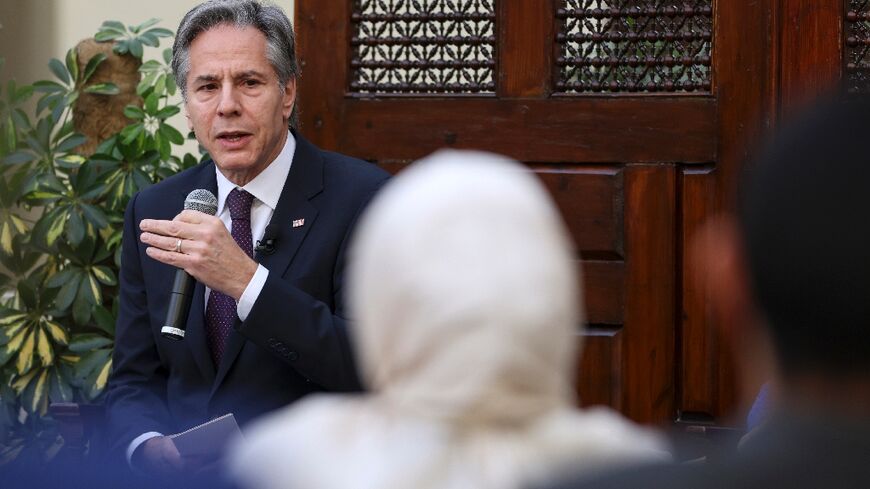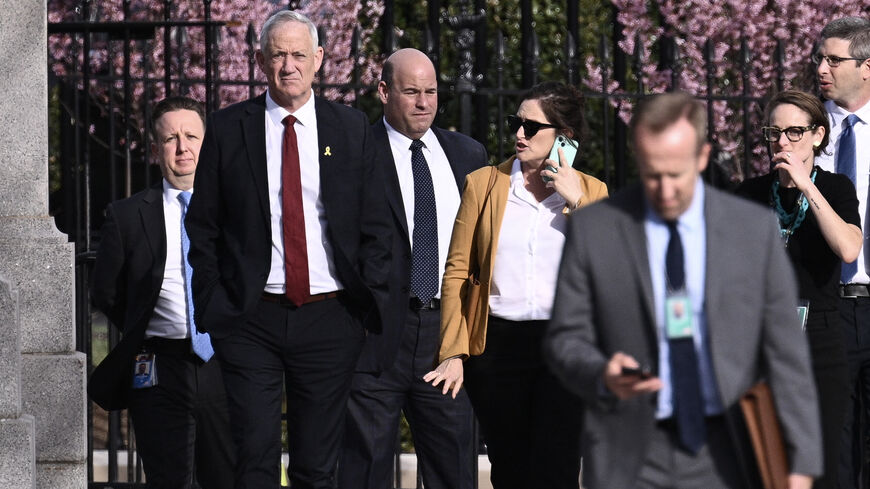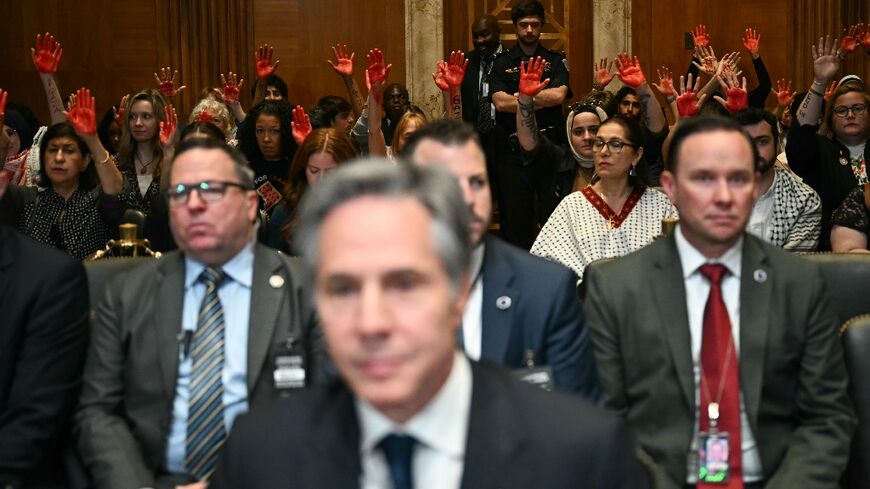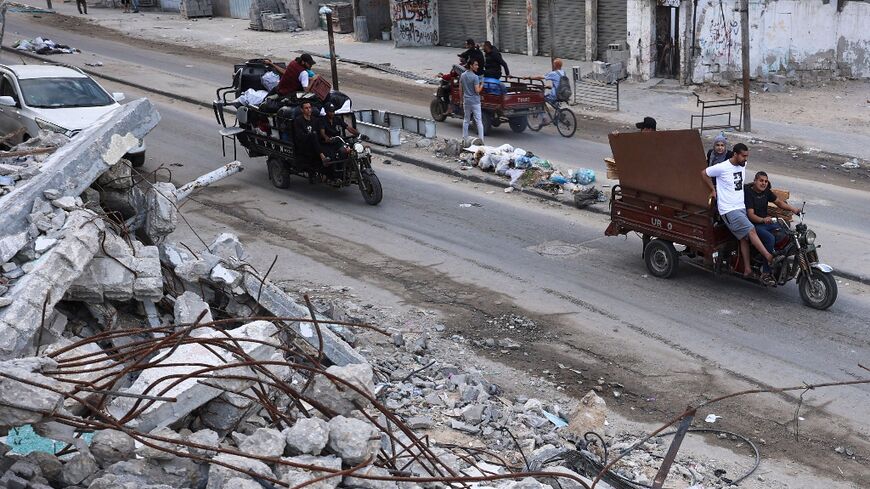Blinken seeks hostage deal in new Mideast crisis tour
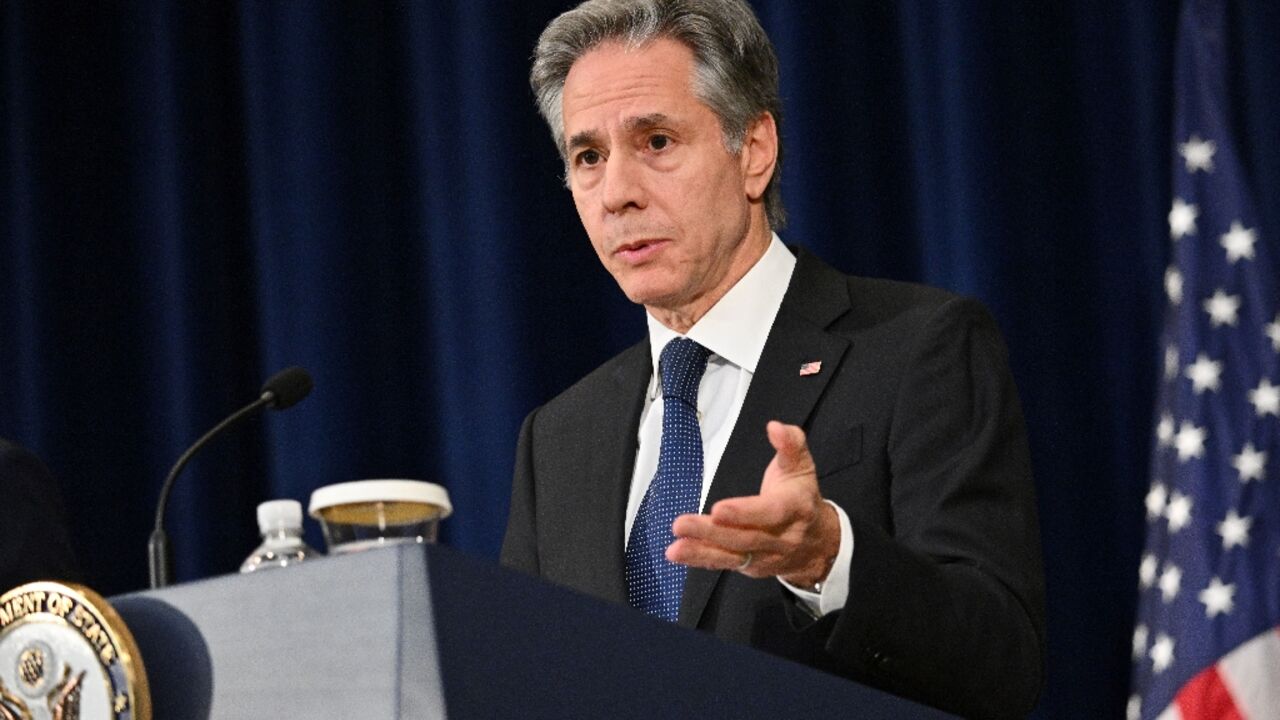
US Secretary of State Antony Blinken will speak to Arab states on a new crisis trip starting Monday about immediately working on priorities including Gaza's reconstruction and seeking a Palestinian state if Israel and Hamas accept a hostage deal, an official said.
The top US diplomat's airplane was refuelling in Ireland on Monday as he heads to Saudi Arabia later in the day, beginning his fifth trip to the Middle East since the October 7 attacks by Hamas which pbut that rompted massive Israeli retaliation.
The trip comes at a delicate time for the United States, which days earlier carried out airstrikes against Iranian targets in Iraq and Syria in response to a drone strike that killed three Americans, the latest escalation in a regional conflict that President Joe Biden had initially sought to avoid.
It also comes as the United States steps up pressure a notch on Israel, with the Biden administration on Thursday imposing sanctions on four extremist settlers in the West Bank after exasperation at violence against Palestinian civilians separate from the Gaza conflict.
Blinken will discuss a proposal reached a week earlier in Paris by the CIA chief and Egyptian, Qatari and Israeli officials that would pause the nearly four-month war as Hamas frees hostages kidnapped during the October assault.
It is "impossible to say if we'll get a breakthrough," a senior State Department official said on Blinken's airplane on condition of anonymity, reiterating the public US line that "the ball right now is in Hamas's court".
But the official said that Blinken -- who will also visit Egypt, Qatar, Israel and the West Bank -- will seek to lay the groundwork for action immediately after any halt to the war, which has isolated the United States on the world stage and led to growing escalation in the region.
"If we get a humanitarian pause, we want to be in a position to move as quickly as possible on the various pieces of (the) day after," the official said.
The priorities would include a reconstruction plan for Gaza, where the majority of buildings lie in rubble after the relentless Israeli military campaign, and a roadmap for the creation of a Palestinian state -- an idea strongly opposed by Israeli Prime Minister Benjamin Netanyahu's hard-right government.
- Push on normalisation -
Another top goal that Blinken will discuss will be Arab normalisation with Israel, the official said.
Before October 7, Saudi Arabia had entered discussions to recognise Israel, in what would be a landmark move as the kingdom is guardian of Islam's two holiest sites.
Blinken, who is expected to meet again with Saudi Arabia's de facto ruler, Crown Prince Mohammed bin Salman, said on his last trip in January that there was still a "clear interest" by Riyadh in normalisation with Israel.
But Israel has faced furious criticism in the Arab world and beyond for its overwhelming use of force and tight blockade.
More than 27,200 people have died in Gaza, according to the health ministry in the Hamas-run territory, and the United Nations has warned of the risk of famine as Gaza residents lack food, water and medicine.
Israel launched the campaign after Hamas fighters infiltrated Israel on October 7 and killed around 1,160 people, mostly civilians, in the deadliest attack in the country's history.
Jake Sullivan, Biden's national security advisor, said that Blinken would press Israel to do more to address the humanitarian situation.
"This will be a top priority of his when he sees the Israeli government -- that the needs of the Palestinian people are something that are going to be front and centre in the US approach," Sullivan told "Face the Nation" on CBS News.
The State Department official said that the United States spoke every day with the Israelis on the humanitarian situation.
"But to get real breakthroughs on some of the big things, one of two things has to happen -- the secretary has to show up or the president has to get on the phone with the prime minister," he said.
"Whenever we come to Israel, we come with a list of things that we're trying to push."


